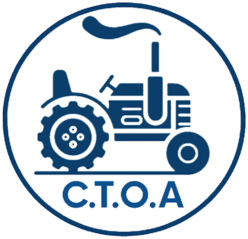Forum › Forums › Tractor/Dozer Engines › rocker arm assy torque
- This topic has 2 replies, 3 voices, and was last updated 12 years, 1 month ago by
RichWaugh.
-
AuthorPosts
-
-
February 15, 2013 at 6:04 am #30731
do you torgue the rocker arm assy and if so what to
-
February 15, 2013 at 10:03 am #35759
yes and each engine type and manf. has it own set specs.we will need to know what engine you have.
-
February 15, 2013 at 12:18 pm #35760
Diesel engines, even small ones found in Chinese tractors, are highly-stressed machinery and require correct torque loadings in fasteners if they're going to keep running for long. As David noted, each engine model has specific torque requirements and there is no “one size fits all” torque setting. The engineers who design the engine calculate what torque setting is appropriate and those figures are usually available in the Engine Owner's Manual for your specific engine.
There should be a plate on the engine itself that gives the model number and year of manufacture as well as the output power and other info. On my 304 Jinma that plate is riveted to the engine block on one side, but your own could be in a different location – you just have to look for it.
With the engine model number and date of manufacture you should be able to obtain the appropriate Engine Owner's Manual from one of the dealers who advertise on this site. Get it and follow the manufacturer's listed torque settings. In some cases, (like head bolts), the manual will specify a certain sequence that the bolts must be torqued in and it is important to follow the sequence and to torque the bolts in the proper procedure with regard to lubricants, washers, etc.
Note: Most Chinese tractors are sold with four manuals – the Tractor Operator's Manual, the Tractor Parts Manual, the Engine Owner's Manual and the Engine Parts Manual. You should really have all four in order to have the information necessary to successfully own, operate and service your tractor.
In instances where there is no torque setting specified for a particular fastener you can generally use the engineered torque rating for that specific size and type of fastener. There are charts available online where you plug in the size of bolt, thread pitch and bolt material (grade) and it will tell you the design torque rating. You should know that that rating is for that specific bolt only when mated with the matching nut. However, if the bolt is going into say, cast iron or soft aluminum, the actual torque setting will quite possibly be significantly different from the design torque. This is where a good reference book like Machinery's Manual can help you out. Or phone a friend. (grin)
-
-
AuthorPosts
- You must be logged in to reply to this topic.
